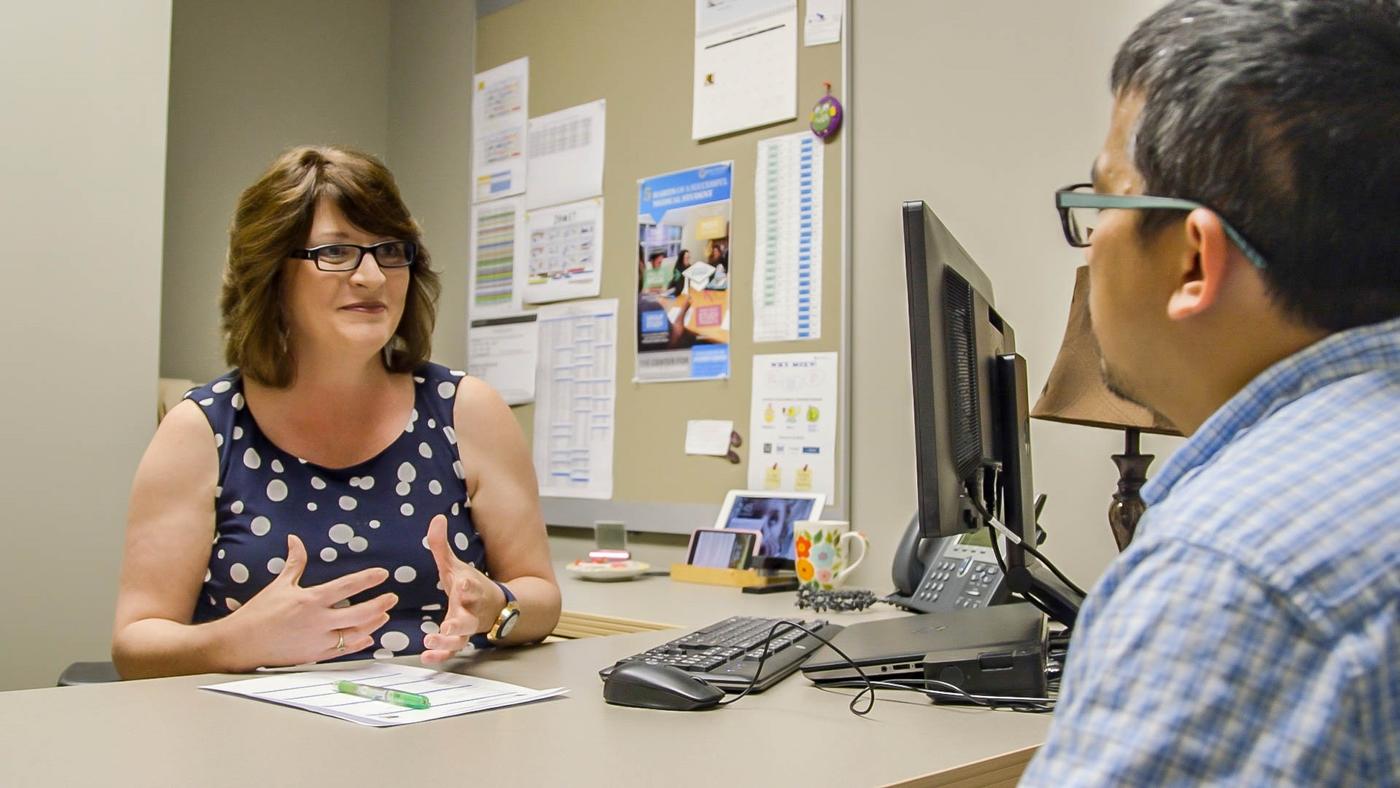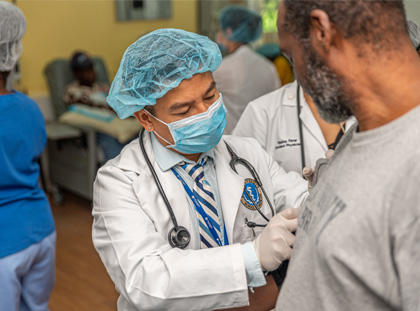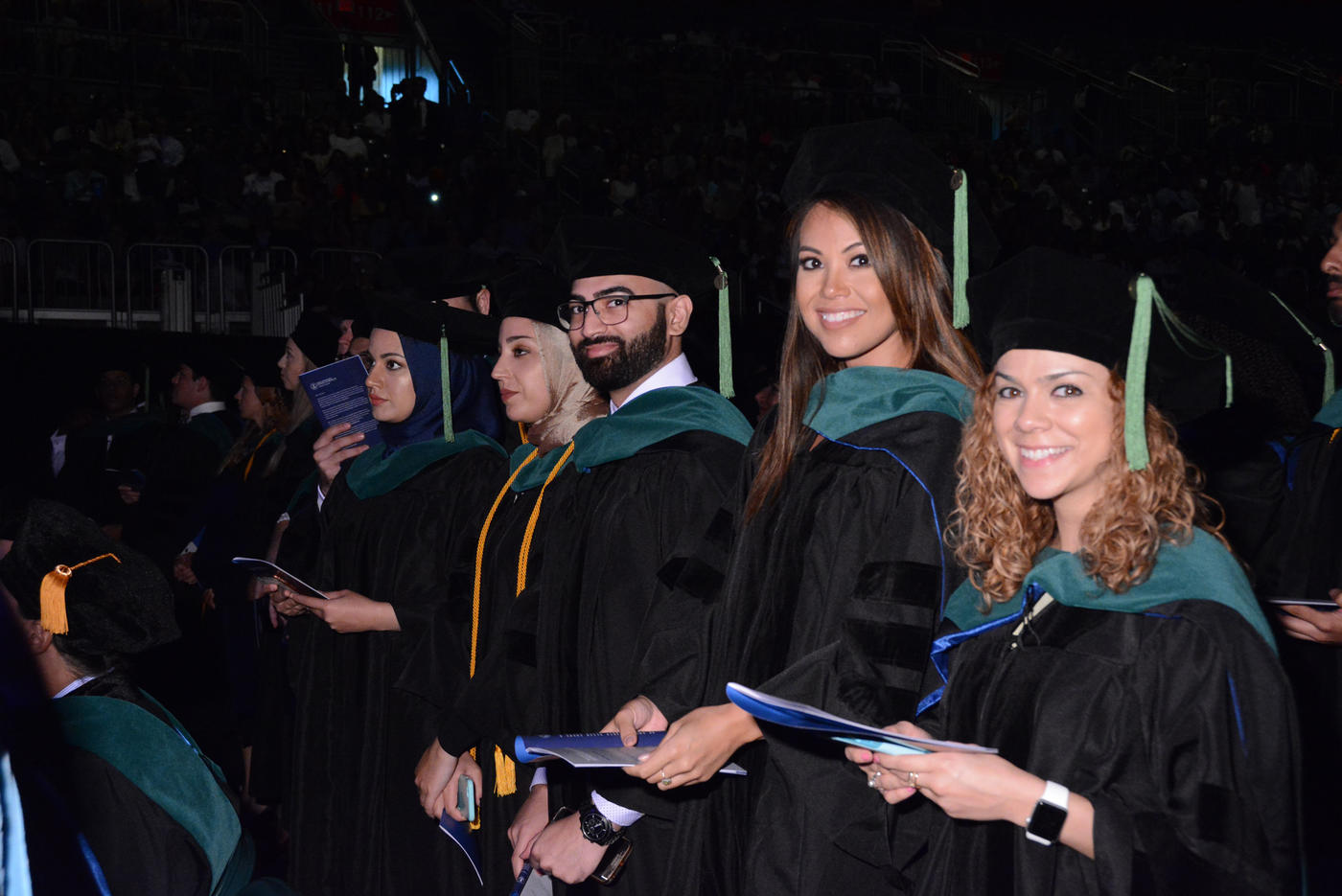You’re almost finished with the process of applying to medical school. You’ve submitted all the necessary materials for your application—your Medical College Admission Test® (MCAT®) score, grade point average (GPA), personal statement, and letters of recommendation; you’ve completed the American Medical College Application Service® (AMCAS®) Work and Activities section, and finished the secondary essays highlighting your accomplishments and academic achievements. After anxiously waiting to hear back, you’ve finally received an invitation to interview. You might breathe a sigh of relief. Even so, it might seem like a small victory. Anticipating the medical school interview might be the most nerve-wracking part of the process, but with adequate preparation it doesn’t have to be.
Anticipating the interview might be the most nerve-wracking part of the process, but with adequate medical school interview prep it doesn’t have to be. Here is a guide for how to prepare for the med school interview, so you’ll be confident when the day arrives.
What is a medical school interview like? How do I start preparing for the medical school interview?? The medical school interview is extremely important in the committee’s evaluation of your potential as a future physician. While you might feel confident about being selected, your med school interview prep will determine if you are admitted to medical school.
Several general categories will typically be covered in the medical school interview. Here are some examples of the medical school interview questions you're likely to be asked, so you know where to start with your medical school interview preparation.
- Current Events — Be well-versed in the latest events in a variety of topics, such as politics, technology and social issues that pertain to health care.
- Medical Topics — Read about the latest research, bioethical issues and policies. Learn about medical technologies, issues facing medicine and life as a doctor.
- Personal Interest — Be ready to discuss your knowledge in any personal interest and how it relates to your interest in medicine and your desire to become a physician.
MEDICAL SCHOOL INTERVIEW PREPARATION TIPS — GUIDANCE FROM THE RUSM ADMISSIONS TEAM
Members of the Ross University School of Medicine (RUSM) Admissions Team have medical school interview tips to help you to prepare effectively.
- Attire and Greetings
RUSM Admissions Consultant Dr. Jon Bolaski recommends wearing professional attire to the interview. “Wear what you’d wear to any job interview—suits are appropriate for both men and women.” RUSM Associate Director of Admissions Shari Goldstein suggests researching the names and titles of any interviewers and use proper professional greetings.
- Technology
Since RUSM interviews are currently conducted virtually via a video conferencing platform (details to be provided), you’ll want to conduct a trial run of the platform a day or so beforehand to avoid any glitches. “Don’t use your phone for the interview because there are often issues. You’ll have a better technical experience using your computer or tablet for the interview,” says Dr. Bolaski. “Never interview in your car. You should select a quiet, professional environment and an uncluttered background for the interview. Make sure to connect earlier than the interview time to account for any technical difficulties. If you do run into technical issues, it’s fine to acknowledge any difficulties you do experience to your interviewer,” says Goldstein.
- Mock Interviewing
The interview length is about an hour. Virtual interviews are different than on-site interviews not only because of technology, but because there’s little time to engage in ‘breaking the ice’ during the interview. "Due to time limits, you may feel like you’re diving in right away,” says Dr. Bolaski. For that reason, mock interviews are an excellent way to feel prepared for your medical school interview. “It’s a good idea to rehearse answers to typical med school interview questions and practice with someone who can listen to your answers and provide feedback. Not only will you feel calmer, but the interview will go more smoothly,” says Goldstein.
Dr. Bolaski explains that you’ll need to be ready for some challenging questions. He recommends reviewing tips and materials provided by the Association of American Medical Colleges (AAMC), as well as a webinar, “Prep for Success in Your Virtual Interview”.
- Personal Qualities
When interviewing candidates, Dr. Bolaski looks for qualities like humility and openness. “Besides discussing activities and experiences that have allowed them to serve others, we look for their ability to understand the moral and ethical dilemmas of modern medicine, discuss how they’d interact with a diverse population and assess if they can articulate their thoughts in a clear, concise manner. In addition, it’s important for candidates to focus on engaging the interviewer.”
- Medical School Interview Preparation
Goldstein suggests researching the typical types of medical school interview questions that will be asked. “The types of questions are not a secret. You can search the web for med school interview questions and resources, as well as books, blogs and student forums. There’s a core set of questions that any applicant should be able to answer. One of the most important things is to thoroughly research the school. Study the curriculum and how the program is structured, know what interests you and why the school would be a good fit. In addition, be sure to prepare a list of your own questions, for example, questions about the program.”
Another area of focus in the interview are the candidates’ activities and experiences. “We look at the breadth and diversity of the activities—to assess what you learned during your time volunteering, shadowing, etc. We also want to know what you learned in the physician-staff exchange and about the care of patients,” says Dr. Bolaski.
Candidates need to tell their unique story says Goldstein. “Medical students are like snowflakes—no two are alike. Each applicant has their own journey. If you had to hold a job while in school, and it affected your grades, explain that. Tell us what you learned from that experience. Every experience adds to your ‘tool belt’ and students shouldn’t feel like they need to fit the mold. Your journey is valuable and helps us discover who you are.”
The admissions staff at RUSM can assist you with information regarding your medical school interview and your med school application. Request more information to find answers about applying to RUSM.




